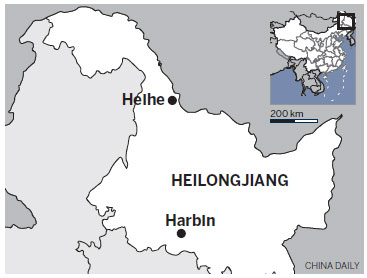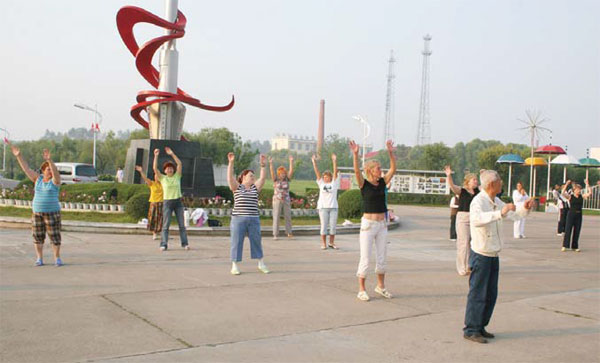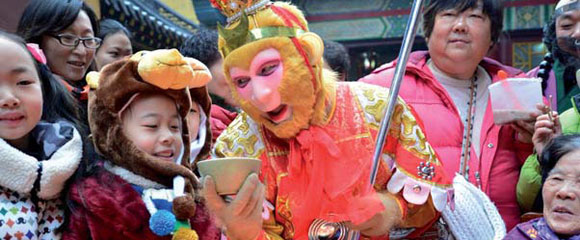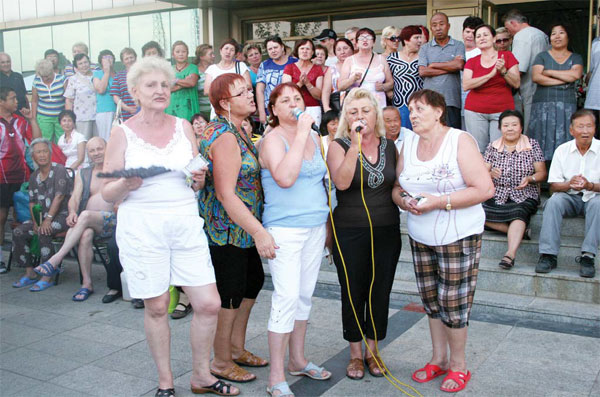Retiree retreats
Updated: 2016-02-05 08:06
By Ren Qi and Tian Xuefei(China Daily Europe)
|
|||||||||||
|
|
Heihe in far northeastern China has started to promote its leisure facilities for elderly Russian tourists
Heihe, a city in far northeast China, has launched a campaign to promote its many "well-being centers" as long-term holiday destinations for elderly Russians.
The local government has invested more than 230 million yuan ($34.9 million; 32.1 million euros) in the project, which aims to raise the profile of its more than 100 locations offering leisure facilities such as spas, hot springs and holistic therapy.
Wang Yongtang, deputy director of social welfare for Heihe, says the latest campaign has been accelerated with support from the government and social organizations.
Located in northeast Heilongjiang province, the city is separated by a river from Blagoveshchensk, the capital of Russia's Amurskaya Oblast. Thanks to its geographical advantage and low prices, the city is already a top holiday destination for those living in cities on the China-Russia border.
Xinianhe Healthcare Center alone has welcomed more than 20,000 Russian tourists from Blagoveshchensk since 1990. Last year, the center opened a new rehabilitation center and a clinic offering traditional Chinese massage and acupuncture.
Wang says the Russian-style well-being centers, which provide space for convalescence, are the most popular institutions offering care and leisure services for retirees from Russia and China.
"I spend my summer holiday in Heihe every year," says Svetlana Kolegova, a 52-year-old from Blagoveshchensk, adding that a key attraction are the city's hot springs.

Liu Guiqing, a retired teacher and part-time interpreter from Harbin, the capital of Heilongjiang, says many Chinese retirees also head to Russia for breaks at similar facilities.
"I've been to Russia with clients numerous times, and I was deeply impressed by the quality there," she says. "I hope I can spend more time there to relax myself."
Zhang Enliang, the city mayor, says economic cooperation between Heihe and Russian cities has been increasing over the past 10 years, thanks largely to policies introduced to make travel easier.
Heihe is just 750 meters from Blagoveshchensk and official data show that 3 million people pass through the Chinese city's border port every year, with most arriving by ferry.
Russians have been able to visit the city without a visa since 2006, and most today come for holidays or to shop, according to Ye Hailin, exit-entry inspection and quarantine official.
To handle the increase in Russian tourists, the city has expanded its immigration control center to cover nearly 8,500 square meters.
In June, under an agreement between the governments of Heilongjiang and Amurskaya Oblast, work was started on a new bridge across the river.
Once completed, Zhang says he expects the bridge to boost economic development in Heihe and attract more Russian tourists.
Contact the writers through renqi@chinadaily.com.cn

Elderly Russians do morning exercises in Heihe.
Today's Top News
Jack magic
Famous rebel with the golden gaze
Changan Automotive consolidates UK operations
Chinese students in UK enjoy fruits of the 'golden era'
Chopsticks shop draws all kinds
Foreign companies bet on China's consumers
Cruz bests Trump in Iowa, Clinton and Sanders tie
PLA revamps command system
Hot Topics
Lunar probe , China growth forecasts, Emission rules get tougher, China seen through 'colored lens', International board,
Editor's Picks

|

|

|

|

|

|
 |
|





